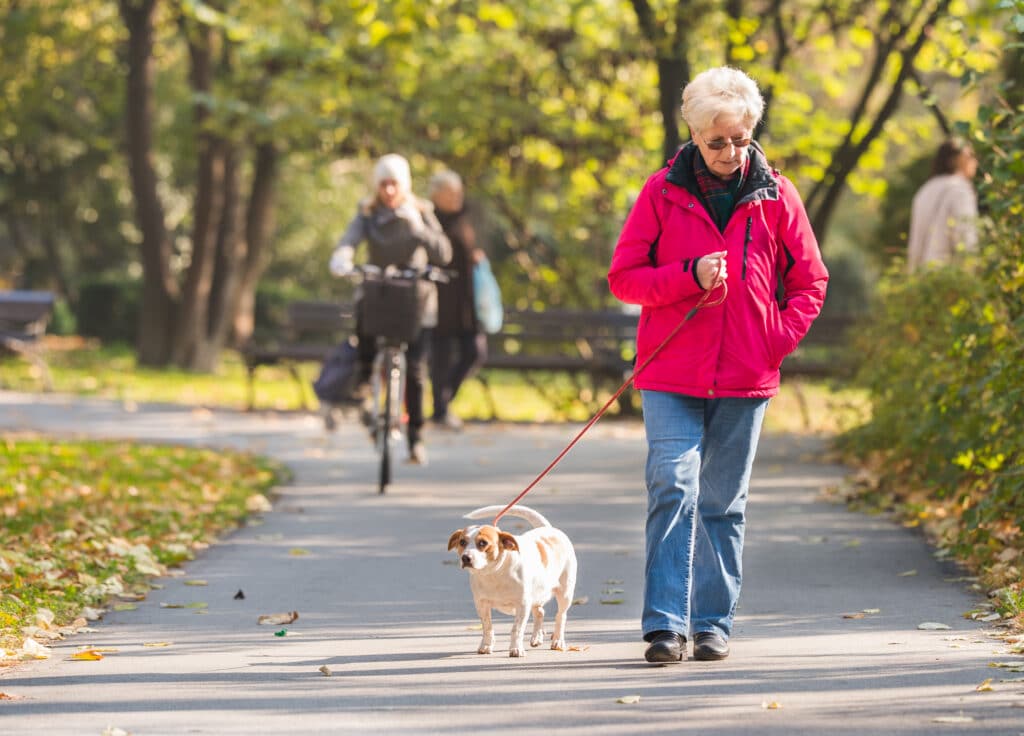Researchers at Johns Hopkins College reveal that traumatic mind accidents (TBIs), had been the second most typical damage amongst adults who stroll their canine from 2001 to 2020.
The researchers’ examine additionally recognized finger fractures and shoulder sprain or pressure as different widespread accidents associated to canine strolling.
The examine found that girls, and all adults 65 years previous and older, had been extra seemingly than every other demographic teams to maintain accidents, akin to fractures and TBIs.
And the researchers additionally discovered that TBI, together with hip fracture, had been the 2 most typical accidents amongst adults aged 65 and older.
Moreover, older canine walkers are greater than thrice extra prone to fall, greater than twice as prone to have a fracture and eventually, 60% extra prone to maintain a TBI than youthful canine walkers.
In the meantime, ladies that suffer accidents from canine strolling actions had been 50% extra prone to maintain fractures than males.

From 2001 to 2020, the estimated annual incidence of leashed canine walking-related accidents has quadrupled.
The researchers presume that that is due to the rise of canine possession and the promotion of canine strolling advantages through the years.
In accordance with the Johns Hopkins College’s Hub, the researchers are from the Johns Hopkins Faculty of Drugs and the Johns Hopkins Bloomberg Faculty of Public Well being.
Ridge Maxson, one of many examine’s first writer and a third-year medical pupil on the Johns Hopkins Faculty of Drugs mentioned, “Though canine strolling is a standard every day exercise for a lot of adults, few research have characterised its damage burden. We noticed a necessity for extra complete details about these sorts of incidents.”
The researchers hope that their discovering will promote consciousness amongst canine house owners. And in addition encourage medical doctors to debate these doable widespread accidents associated to canine strolling with their sufferers.
The examine’s senior writer, Edward McFarland, mentioned, “We encourage clinicians to display screen for pet possession, assess fracture and fall danger, and focus on protected canine strolling practices at common well being upkeep visits for these weak teams. Regardless of our findings, we additionally strongly encourage individuals to leash their canine wherever it’s legally required.”


